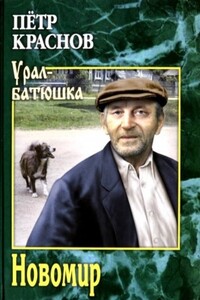36 Arguments for the Existence of God - [14]
“Someday, you’re going to stand here in your flowing white dress and your white tulle veil, with some strong, good, handsome man beside you, and he’ll be thinking that, of all the beautiful roses in this garden, he has picked the loveliest one of all.”
“Which one did he pick? The Alchymist?”
This was their favorite rose, not only because of its beauty-it changes shade day by day, deepening from cream into orange-but also because Philippa had been able to grow it herself from division, a fascinating process which little Lucinda had avidly followed.
“No, you silly! You! You’ll be the rose he picks.”
“I’m not a flower. And, anyway, picking flowers only makes them wilt, even if you put sugar in the water to give them energy. Don’t let that man pick me, Mommy.”
But here was a complication: If her father adored her mother so much, as he self-evidently did, then why had he wanted Lucinda to be so different from Philippa? Why had he so extravagantly cultivated Lucinda’s intellectual pride and derived such pleasure from his little baby’s taking on everyone and whupping them upside the head? Why did he continue to tell that punch line, “Don’t let that man pick me, Mommy,” with undiminished relish?
It was the first time she had asked herself such questions, and it made her unsteady. She didn’t know how to describe the feeling, and she didn’t know how to explain it away.
It was a setback, of course, for Lucinda, to take up the post, lucrative as it was, at Frankfurter. The department was a bit of a joke, stocked with all sorts of flakes. Sebastian Held seemed the only one who did what Lucinda considered real science. But, still, the very laid-backness of the place was a welcoming change for the time being. She could regroup and come back stronger than ever.
Lucinda took a rather implacable attitude toward the softer and more addled areas of psychology. She had to. Psychology, like Lucinda herself, couldn’t afford to indulge in softness. In some sense, she and psychology were similar, their fortunes joined, both of them with a lot to prove, with a presumption of softness to overcome. In the case of Lucinda, the presumption was the result simply of her being a woman, especially a woman who looked the way she did. She had had to put up with a lot to get where she was, and the putting up never really stopped. Look how precipitously she had been toppled from her perch at Princeton. A woman who thinks for her living always has to be on her guard, always has to cultivate her implacability.
Deep down, she still thought of herself as shy. She had been pathetically shy as a girl. But at a certain point, while still an undergraduate, she had realized that shyness was a luxury she could ill afford, and had found that the best way of overcoming it was, whenever possible, to go on the attack. She herself had coined the verb “to fang” when she was an undergraduate at Harvard, where she had begun to hone her aggressive style of questioning. To fang is to pose a question from which the questioned can’t recover. You could see the stun, the realizaton of helplessness setting in.
Lipkin was already quite a bit past the one-hour time limit and was foaming like a mad dog. For all his bombast throughout the talk, he ended rather limply, hurriedly restating his claim that moral reason is a myth. Perhaps his mouth had run dry.
Lucinda’s running patter all through Lipkin’s talk had seemed to indicate that she was listening to Lipkin as superficially as Cass himself had been. But when the call for questions came, hers was the first hand to shoot up-or maybe it was tied with Mona’s-but in any case, Lucinda Mandelbaum was the one who was recognized. Just about everybody in the auditorium had been waiting for this moment. Would they be witness to the first fanging at Frankfurter? She stood up. The gesture itself was uncommon in these parts, and it seemed to raise the proceedings to a new level.
“Thank you, Harold, for that provocative talk. I think I speak for everyone here in saying how much we admire both your erudition and your ability to speak so quickly.”
The laughter was good-natured. Lipkin’s smile was grim.
“You’ve packed so much in that it’s hard to know where to begin. I’m going to restrict myself to the last point you made. I want to challenge your claim that the Milgram experiment shows that there’s no moral reasoning going on. And my objection to your interpretation of the Mil-gram experiment is an objection to your entire thesis that reasoning isn’t functioning in our moral calculations, that it’s all just gut reactions.
“Milgram’s results are astonishing, but no more astonishing than the result we get in game theory in what we call escalation games. What I’d like to suggest is that Milgram’s experiment is an escalation game, and the playing of an escalation game certainly involves reasoning.
“Take the simplest escalation game, the dollar auction. Two or more people can bid on a dollar. Each bid has to be higher than the last, and the highest bid gets the dollar-just like in a regular auction-but, crucially, the lower bidders have to pay whatever their last bid was, even though they get nothing. Given these rules, the bidding will quickly go up to a dollar, with the last bidder having bid ninety-nine cents. Will it stop there? No, because then the ninety-nine-cent bidder will have to pay ninety-nine cents and get nothing for it. So he rationally bids a dollar and a cent, so he’ll lose only a cent rather than a dollar, which is outbid by a dollar and two cents, and so on. What happens in the dollar auction is that people will bid five dollars, ten, fifteen dollars, just to get a dollar in return. In fact, once you get a dollar auction started, there’s no rational way for it to end, since the cost to either player of bowing out will be high, and the marginal cost of raising his bid is just a penny. So it’s rational to keep bidding, a penny at a time, even though this leads to an irrational result.

Жизнь Полины была похожа на сказку: обожаемая работа, родители, любимый мужчина. Но однажды всё рухнуло… Доведенная до отчаяния Полина знакомится на крыше многоэтажки со странным парнем Петей. Он работает в супермаркете, а в свободное время ходит по крышам, уговаривая девушек не совершать страшный поступок. Петя говорит, что земная жизнь временна, и жить нужно так, словно тебе дали роль в театре. Полина восхищается его хладнокровием, но она даже не представляет, кем на самом деле является Петя.

«Неконтролируемая мысль» — это сборник стихотворений и поэм о бытие, жизни и окружающем мире, содержащий в себе 51 поэтическое произведение. В каждом стихотворении заложена частица автора, которая очень точно передает состояние его души в момент написания конкретного стихотворения. Стихотворение — зеркало души, поэтому каждая его строка даёт читателю возможность понять душевное состояние поэта.

Россия, Сибирь. 2008 год. Сюда, в небольшой город под видом актеров приезжают два неприметных американца. На самом деле они планируют совершить здесь массовое сатанинское убийство, которое навсегда изменит историю планеты так, как хотят того Силы Зла. В этом им помогают местные преступники и продажные сотрудники милиции. Но не всем по нраву этот мистический и темный план. Ему противостоят члены некоего Тайного Братства. И, конечно же, наш главный герой, находящийся не в самой лучшей форме.

О чем этот роман? Казалось бы, это двенадцать не связанных друг с другом рассказов. Или что-то их все же объединяет? Что нас всех объединяет? Нас, русских. Водка? Кровь? Любовь! Вот, что нас всех объединяет. Несмотря на все ужасы, которые происходили в прошлом и, несомненно, произойдут в будущем. И сквозь века и сквозь столетия, одна женщина, певица поет нам эту песню. Я чувствую любовь! Поет она. И значит, любовь есть. Ты чувствуешь любовь, читатель?

События, описанные в повестях «Новомир» и «Звезда моя, вечерница», происходят в сёлах Южного Урала (Оренбуржья) в конце перестройки и начале пресловутых «реформ». Главный персонаж повести «Новомир» — пенсионер, всю жизнь проработавший механизатором, доживающий свой век в полузаброшенной нынешней деревне, но сумевший, несмотря ни на что, сохранить в себе то человеческое, что напрочь утрачено так называемыми новыми русскими. Героиня повести «Звезда моя, вечерница» встречает наконец того единственного, кого не теряла надежды найти, — свою любовь, опору, соратника по жизни, и это во времена очередной русской смуты, обрушения всего, чем жили и на что так надеялись… Новая книга известного российского прозаика, лауреата премий имени И.А. Бунина, Александра Невского, Д.Н. Мамина-Сибиряка и многих других.

Две женщины — наша современница студентка и советская поэтесса, их судьбы пересекаются, скрещиваться и в них, как в зеркале отражается эпоха…